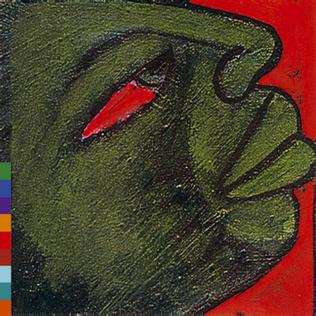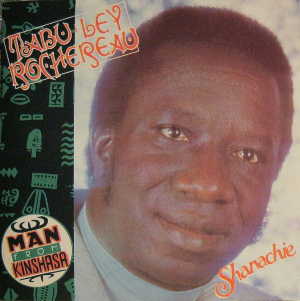
As it is in other countries, the music in Tanzania is constantly undergoing changes, and varies by location, people, settings and occasion. The five music genres in Tanzania, as defined by BASATA are, ngoma, dansi, kwaya, and taarab, with bongo flava being added in 2001. Singeli has since the mid-2000s been an unofficial music of uswahilini, unplanned communities in Dar es Salaam, and is the newest mainstream genre since 2020.
Bongo Flava is a nickname for Tanzanian music. The genre developed in the 1990s, mainly as a derivative of American hip hop and traditional Tanzanian styles such as taarab and dansi, with additional influences from reggae, R&B, and afrobeats, to form a unique style of music. Lyrics are usually in Swahili or English, although increasingly from mid 2000s there has been limited use of words from Sub-Saharan African music traditions due to the influence of Afrobeats and Kwaito with their dynamics usage of West African Pidgin English, Nigerian Pidgin or other Creole language.
Tanzanian Hip-hop, which is sometimes referred to Bongo Flava by many outside of Tanzania's hip hop community, encompasses a large variety of different sounds, but it is particularly known for heavy synth riffs and an incorporation of Tanzanian pop.
The Sfinks festival is a Belgian festival for world music at Boechout. The festival is held during the last weekend in July.
Imani Sanga is Professor of Music in the Department of Creative Arts, formerly called Department of Fine and Performing Arts, in the College of Humanities at the University of Dar es Salaam, Tanzania. He teaches courses in Ethnomusicology, Philosophy of Music, Composition and Choral Music. And he conducts the university choir.

Natural Born Killers: A Soundtrack for an Oliver Stone Film is the soundtrack to the film Natural Born Killers, produced by Trent Reznor of Nine Inch Nails. It was released on August 23, 1994. It charted at number 19 on US Billboard 200 album charts.
Muziki wa dansi, or simply dansi, is a Tanzanian music genre, derivative of Congolese soukous and Congolese rumba. It is sometimes called Swahili jazz because most dansi lyrics are in Swahili, and "jazz" is an umbrella term used in Central and Eastern Africa to refer to soukous, highlife, and other dance music and big band genres. Muziki wa dansi can also be referred to as Tanzanian rumba, as "african rumba" is another name for soukous.

One World One Voice is a world music album intended to raise awareness of environmental issues, produced by Rupert Hine in 1990. A video of the entire album was produced for television together with a "Making of" documentary.

Born in Morogoro (Tanzania), Ras Nas, aka Nasibu Mwanukuzi, is a musician and poet from Tanzania who blends African music and reggae with a dash of poetry. Ras Nas' latest album, Dar-es-Salaam, contains roots reggae, soukous and dub poetry. It is released by Kongoi Productions, KonPro. Dar es Salaam has received a five star review in one of Norway's biggest dailies, Dagsavisen.
Ramazani "Remmy" Mtoro Ongala was a Tanzanian guitarist and singer. Ongala was born in Kindu near the Tanzanian border, in what was the Belgian Congo at the time, and now is the Democratic Republic of the Congo.
Orchestra Makassy were an East African soukous band of the late 1970s and early 1980s, consisting of musicians from Uganda and Zaire. In 1975, under the leadership of their principal vocalist Kitenzogu "Mzee" Makassy, the group moved from Kampala, Uganda to Dar es Salaam, Tanzania, taking up residence at the New Africa Hotel where they were joined by guitarists and singers such as Mose Se Sengo and Remmy Ongala. One of the band's first recordings was the song "Chama Cha Mapinduzi" praising the Tanzanian independence party, with lyrics based on the words of the country's first president, Julius Nyerere. In 1982, the band moved to Nairobi, Kenya, to record The Nairobi AGWAYA Sessions at the CBS Nairobi studio. Remmy Ongala left the band and stayed in Tanzania where he went on to join Orchestra Super Matimila. Mose Se Sengo left the band in Kenya to start his own band Somo Somo. The Nairobi Agwaya Sessions, produced by London-based Australian engineer, Norman Mighell, has been described as "one of the finest moments of East African rumba". The band broke up in 1984.

Zing Zong is an album by the Congolese musician Kanda Bongo Man, released in 1991. The album is dedicated to the memory of Soki Vangu and his brother Soki Dianzenza, who were in the earlier Zairean soukous band Orchestre Bella Bella. Both brothers died within a year of each other. "Freres Soki" is a tribute to them, and "Zing-Zong" is a reworking of a Bella Bella hit, "Houleux Houleux". Kanda supported the album with a North American tour.
Jhikoman also known as Jhiko Manyika, is a Tanzanian reggae artist. He has served as an active musician since 1994 and toured extensively in both Europe and Africa. He combines acoustic reggae with African music. Jhikoman sings in English, Swahili, and mother tongue Kinyasa.
Tabora Sound Band, formerly known as Tabora Jazz, is a seminal Tanzanian muziki wa dansi band based in Tabora, Tanzania and led by guitarist Shem Ibrahim Karenga. In the 1970s, their song Dada Asha was a major hit in Tanzania and East Africa. They disbanded in the late 1970s but efforts were made to revive the band. So, by early 1980s, it was active again but disbanded in mid 1980s following damage of the instruments by an electric shock. It was later reformed by Shem Karenga as Tabora Jazz Stars. Kassimu Kaluwona, the rythim guitarist of the former band also joined. The band was based in Dar es Salaam.They mainly played classic songs of the former band, Tabora Jazz Band.

Babeti Soukous is a 1989 studio/live album by DR Congolese soukous musician and pioneer Tabu Ley Rochereau and his band the Afrisa International Orchestra. Recorded for the duration of only one night as a live studio session at Real World Studios, Wiltshire, England in 1989, the album was one of the four albums released to establish Peter Gabriel's world music label Real World Records, and was one of the first recordings Rochereau created after exiling to France in 1988. Rochereau used the album as an opportunity to re-record highlights from the previous 20 years of his career.
Benard Michael Paul Mnyang'anga better known by his stage name Ben Pol, is a Tanzanian singer and songwriter from Dar es salaam, Tanzania. On January 5, 2024, Ben Pol released his highly anticipated third album 'Flamingo', which Simulizi Na Sauti's music critic, Enky Frank described the album as an educational package for love, lifestyle and daily activities
Kasaloo Kyanga was a Congolese musician, guitarist, and composer. Kyanga's compositions, including the hit song "Masafa Marefu", composed with Tancut Almasi Orchestra, continue to be performed by musicians. His other hit songs include "Nimemkaribisha Nyoka", "Butinini", "Kashasha", and "Kambwembwe".

Marjurugenta is the debut album by Mozambican marrabenta band Ghorwane, recorded in August 1991 at Real World Studios but not released until September 1993 by Real World Records. The band had built up a reputation in their native country throughout the 1980s for their unique urban dance musical style and politically conscious lyrics, pulling from genres such as marrabenta and xigubu. After being denied visas to play at a European festival in 1987, it soon became possible for the band to play the world music-celebrating WOMAD festival in 1990. While on their trip to the festival, the band were approached by the WOMAD-affiliated Real World Records to record their debut album.
Leila Sheikh or Sheikh-Hashim was a Tanzanian journalist, women's rights activist and blogger. She was a founder member of Tanzania Media Women's Association (TAMWA) and became TAMWA's Executive Director in 1996.

Man from Kinshasa is a compilation album by the Congolese musician Tabu Ley Rochereau. It was released in 1991. Rochereau supported the album with a North American tour.









